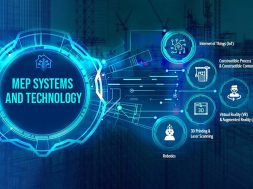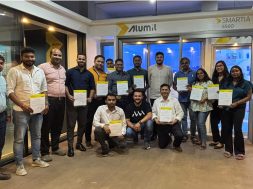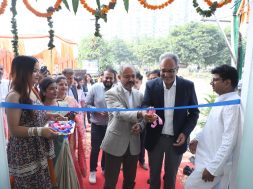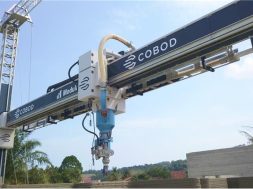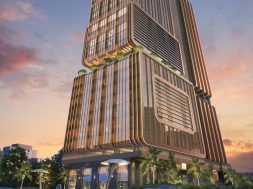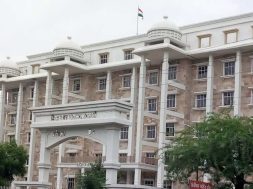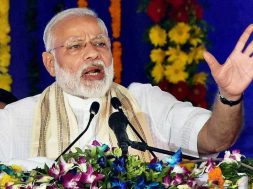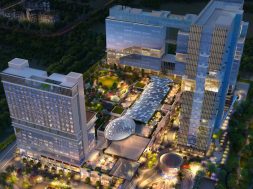MEP unlocking a sustainable future
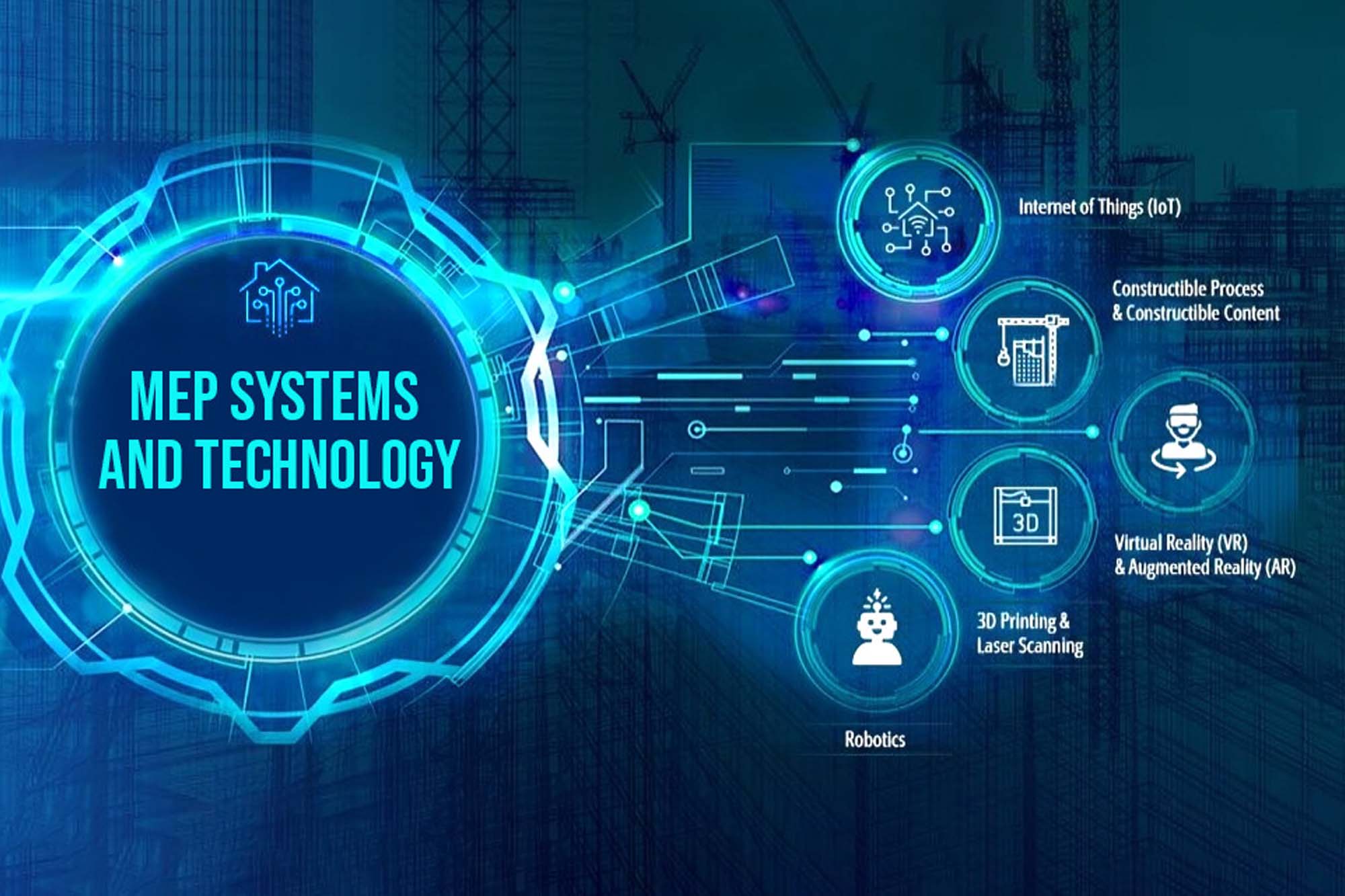
Leading experts in the MEP sector have shared their thoughts on technological advancement, their approach towards energy efficiency and MEP service in building performance.
According to the “MEP Services Market” Research Report for 2023, comprehensive data on the historical and current state of the market, including production costs, volume, market share, size, and growth trends, are presented. A notable development within the global MEP Services industry includes product categories such as HVAC, Fire-fighting, Electrical, and Plumbing, alongside applications in Infrastructure, Commercial, Hospitality, and Healthcare sectors.
Achieving energy efficiency and environmental sustainability through MEP (Mechanical, Electrical, and Plumbing) systems involves integrating high-efficiency equipment, adopting an integrated building design approach, implementing advanced building automation and controls, integrating renewable energy sources, optimising the building envelope, implementing proactive maintenance practices, and incorporating water conservation measures. By combining these strategies, buildings can significantly reduce energy consumption, minimise environmental impact, and enhance occupant comfort and well-being, ultimately contributing to a more sustainable built environment.
MEP consulting professionals like Shankar Ghime, Chief Consultant & Energy Auditor at Airtechnics MEP Consultants, lead the charge towards a more sustainable future. Their approach involves delivering efficient MEP systems and educating clients and architects on the long-term benefits of energy efficiency and environmental sustainability. During project planning stages, Ghime and his team prioritise meetings with clients and architects to accentuate the implications of energy efficiency. They emphasise that significant strides can be made in reducing energy waste and promoting sustainability by employing measures such as energy-efficient lighting, HVAC systems, building automation, renewable energy, water conservation, and building envelope optimisation.
Likewise, Indravadan Vala, Principal Consultant and COO at Esscons MEP & Engineering Design Service is dedicated to integrating energy-efficient equipment and sustainable design principles into MEP systems. Through thoughtful design and the incorporation of intelligent control systems, Vala’s team aims to diminish a building’s environmental impact while reducing operational expenses.
Dipak Babrekar, Founder of Benchmark MEP Engineering Consultant, takes a collaborative approach to promote energy efficiency and sustainability. Babrekar’s team optimises MEP systems and implements eco-friendly practices like rainwater harvesting and waste management by working closely with architects, engineers, and contractors. Their commitment to research and cutting-edge technologies ensures clients have the most innovative solutions for sustainable building practices.
Moreover, Indravadan says they focus on achieving seamless integration and coordination of MEP systems. They collaborate closely with architects, engineers, and stakeholders to ensure the harmonious functionality of all systems. Utilising advanced 2D CAD technology, our skilled team creates detailed drawings to enhance communication, minimise conflicts, and precisely coordinate mechanical, electrical, and plumbing components. Additionally, it leverages cutting-edge building information modelling (BIM) technology to develop detailed 3D models, facilitating collaboration and coordination among different disciplines. This approach enhances communication, reduces clashes, and ensures the efficient functioning of MEP systems. With a team of experienced professionals in various MEP disciplines, we foster effective communication and collaboration throughout the design process.
Technological advancements
Integrating Internet of Things (IoT) devices transforms MEP systems, enabling real-time monitoring and control capabilities. These sensors detect issues such as leaks and energy inefficiencies, empowering proactive maintenance and the optimisation of building systems. Concurrently, Building Information Modelling (BIM) technology empowers MEP engineers to generate intricate digital representations of building systems, streamlining coordination and reducing conflicts during design and construction phases.
MEP solutions embrace energy-efficient HVAC systems, smart lighting controls, and renewable energy sources like solar panels. These advancements enable building management systems to fine-tune energy usage according to occupancy patterns and environmental conditions. Moreover, Augmented Reality (AR) and Virtual Reality (VR) technologies provide engineers with tools to visualise MEP designs within real-world contexts, aiding in issue identification and informed decision-making before construction initiation.
Keeping pace with technological advancements is integral to Shankar’s approach, which involves frequent domestic and international visits to exhibitions and technical conferences. These outings serve as opportunities to scout for new software solutions entering the market, enabling them to articulate specific requirements for software development. Their proactive engagement extends to providing manufacturers with insightful suggestions for product upgrades to enhance workability and energy efficiency. Notably, many of these recommendations have been successfully incorporated. Airtechnics MEP Consultants, based in Central India, have emerged as pioneers in implementing cutting-edge technological developments within the region. Actively participating in technical associations such as IGBC, ISHRAE, IPA, FSAI, and AEE, they remain at the forefront of industry innovation.
Indravadan, conversely, champions longevity and efficiency in MEP solutions through a blend of advanced technologies and strategic methodologies. Their approach involves meticulous analysis of alternative materials and equipment options to optimise cost-effectiveness while upholding performance standards. Emphasising the importance of preventive maintenance, they ensure optimal equipment performance and extend lifespan. Advocating for using high-quality materials and durable equipment, they ensure that MEP systems remain efficient over the long term. Maintaining a leading edge requires a commitment to continuous education and active participation in industry events, a principle Esscons MEP & Engineering Design Service embraced. Through workshops, conferences, and collaborations with technology providers and research institutions, they evaluate and implement the latest proven technologies, ensuring clients receive innovative and efficient MEP solutions.
Dipak stresses the significance of continuous learning. Attending seminars, participating in webinars, and fostering a culture of knowledge sharing among team members are key facets of their approach. Developing in-house project data to establish best practices in building services design and project management further enhances the quality of their MEP solutions. By staying abreast of technological advancements and fostering a culture of continuous improvement, Dipak remains poised to deliver cutting-edge solutions that meet the evolving needs of the industry.
49
Cookie Consent
We use cookies to personalize your experience. By continuing to visit this website you agree to our Terms & Conditions, Privacy Policy and Cookie Policy.
